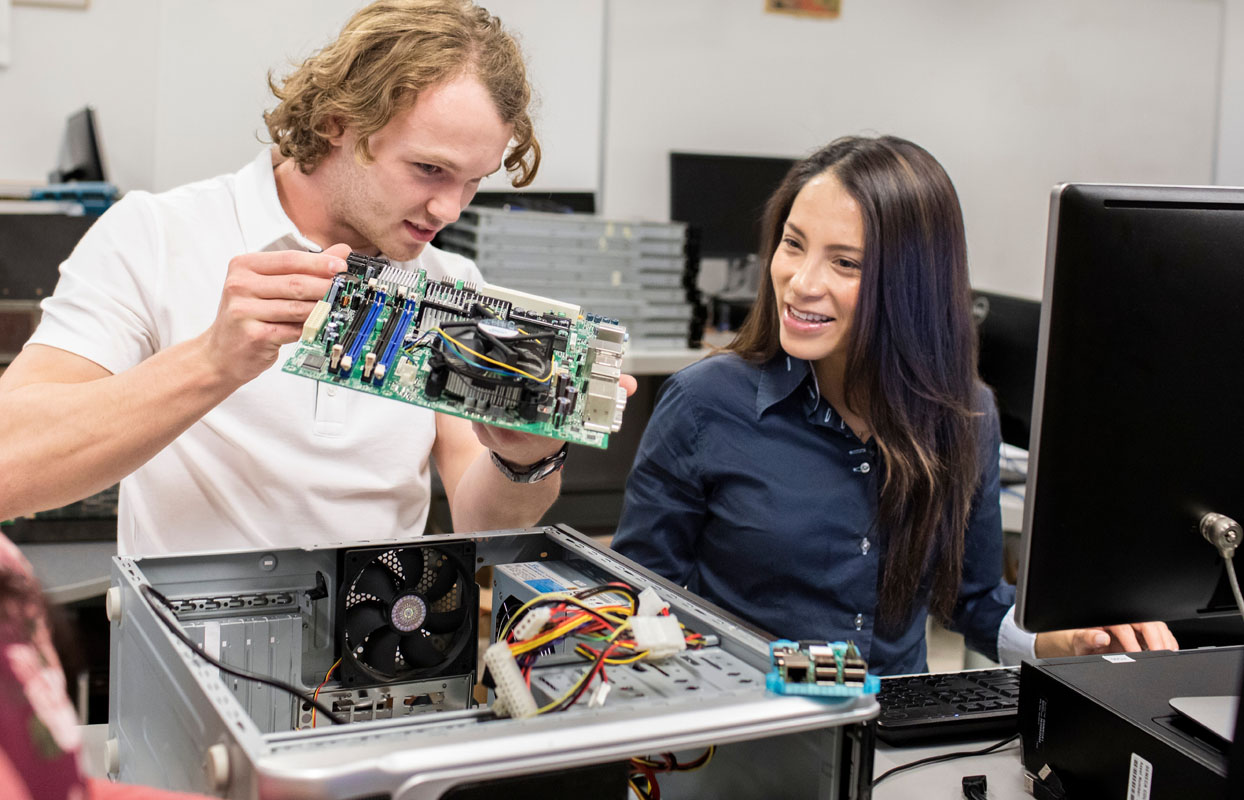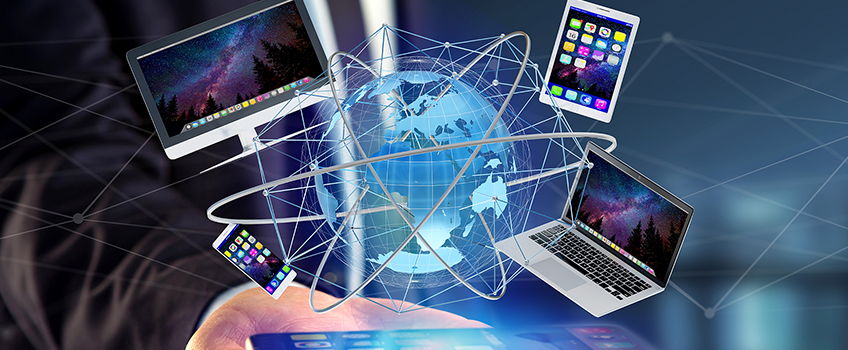Are you fascinated by the digital world and eager to understand how it all works? Computer systems technology is the backbone of our modern existence, powering everything from your smartphone to complex business operations.
Imagine having the skills to not only understand but also shape this technology. You'll discover the essentials of computer systems technology, revealing how it impacts your daily life and opens up exciting career opportunities. Stay with us to uncover how this knowledge can transform your interaction with technology and potentially guide you toward a rewarding future in this ever-evolving field.

Credit: www.senecapolytechnic.ca
Evolution Of Computer Systems In Business
Businesses used mainframes for big tasks. They were large and costly. Only big companies could afford them. Then, personal computers (PCs) arrived. They were small and cheaper. Many businesses quickly switched to PCs. This change made work faster. Everyone could use a PC. It helped many businesses grow. Mainframes were powerful but PCs were flexible. PCs could do many tasks at once. They changed how businesses worked.
The internet changed everything. Businesses connected in new ways. Sharing information became easy. Networking joined computers together. This made teamwork simple. People worked from anywhere. The internet brought new tools. Email, websites, and online meetings became normal. Businesses grew faster. They reached more customers online. The world became smaller. Networking allowed easy communication. It improved how businesses operated.
Key Components Of Modern Computer Systems
Hardware in computers has changed a lot. Faster processors make computers run quicker. More memory lets us keep more data. Storage devices are now bigger and faster. Graphics cards give us better pictures. Touch screens make computers easier to use. These advancements help in daily tasks and fun activities.
Software is what makes computers useful. New programs do more things. Operating systems are easier to use. Apps help with work, play, and learning. Software updates fix problems and add features. Many new tools help us make things and solve problems.
Cloud computing stores data online. It lets us access files from anywhere. No need for big storage devices. Virtualization makes one computer act like many. It saves space and money. These technologies make work easier and faster.
Enhancing Business Operations
Machines can do many jobs. Automation helps tasks get done fast. This saves time and reduces errors. Businesses run smoother with automation. Workers have more time for creative tasks. It boosts overall efficiency.
Data helps businesses make good choices. Computers store lots of information. Analytics helps find patterns in data. This improves decision-making. Companies can plan better. They understand customer needs. This leads to better services.
Computers make talking easy. Teams use email and chat. This improves communication. People can work together from far places. Collaboration becomes simple. Projects move faster. Ideas are shared quickly. This helps businesses grow.
Security And Risk Management
Protecting computer systems is crucial for businesses. It involves managing risks and ensuring data security. Effective security measures safeguard sensitive information and maintain system integrity.
Cybersecurity Challenges
Cybersecurity is about keeping computers safe. Hackers try to break in. They steal data. This is a big problem. Schools, banks, and homes need protection. Using strong passwords helps. Updating software is important. Firewalls block bad traffic. Antivirus software catches threats. Safety online is a team effort.
Developing Secure Systems
Secure systems keep data safe. Engineers design them carefully. They use strong codes. These codes are hard to crack. Testing systems is important. Bugs are fixed fast. Backups save copies of data. Secure systems have many layers. Each layer adds protection.
Risk Assessment Strategies
Risk assessment checks for dangers. It finds weak spots. Experts study these risks. They make plans to fix them. Prioritizing risks is key. Some risks are more dangerous. Fixing them first is smart. Regular checks are important. They keep systems strong and safe.
Future Trends In Computer Systems Technology
Computers are becoming smarter. Artificial Intelligence (AI) helps them learn and make choices. AI can help in driving cars safely. It can also help doctors find diseases. Many gadgets use AI now. It makes them better and faster.
Edge Computing is a new way to handle data. It lets computers process data close to where it is created. This makes things faster. Edge Computing can help in smart cities. It can make traffic lights smarter. It also helps in saving energy.
Green Technology is important for our planet. Computers can be made to use less power. This helps the Earth stay clean. Many companies now use green energy. Sustainability in tech means using less and saving more. It is good for everyone.

Credit: stockton.edu

Credit: www.mohawkcollege.ca
Frequently Asked Questions
What Is Computer Systems Technology?
Computer systems technology involves the study and application of hardware, software, networks, and databases. It focuses on designing, implementing, and managing technology solutions. This field supports efficient data processing, communication, and information management, enhancing business operations and personal computing experiences.
What Can You Do With A Computer Systems Technology Degree?
A computer systems technology degree enables careers in IT support, network administration, cybersecurity, and systems analysis. Graduates can design, implement, and maintain computer systems. They often work in diverse industries, including healthcare, finance, and education. The degree opens pathways to roles like database administrator, software developer, and IT consultant.
What Are The 4 Types Of Computer Systems?
The four types of computer systems are supercomputers, mainframe computers, minicomputers, and microcomputers. Supercomputers perform complex calculations. Mainframe computers handle vast data processing. Minicomputers serve mid-range tasks. Microcomputers, like desktops and laptops, cater to personal and small business needs.
What Is A Ba In Computer Systems Technology?
A BA in Computer Systems Technology is an undergraduate degree focused on computer systems, programming, and IT management. It prepares students for careers in technology, emphasizing practical skills and theoretical knowledge. Graduates can pursue roles in system administration, network management, and software development.
Conclusion
Computer systems technology shapes our lives daily. It impacts work, communication, and learning. Advances continue to transform industries. Every day, new tools emerge. They offer solutions and boost efficiency. Embrace these changes to stay ahead. Explore new technologies. Discover their potential benefits.
Stay informed and adapt. This field evolves rapidly. It demands constant learning and curiosity. Engage with the latest trends. Your understanding will grow. Technological progress never stops. Keep exploring. Stay curious. With knowledge, you can navigate the digital world better.
A brighter future awaits those who embrace innovation.
.png)






0 Comments